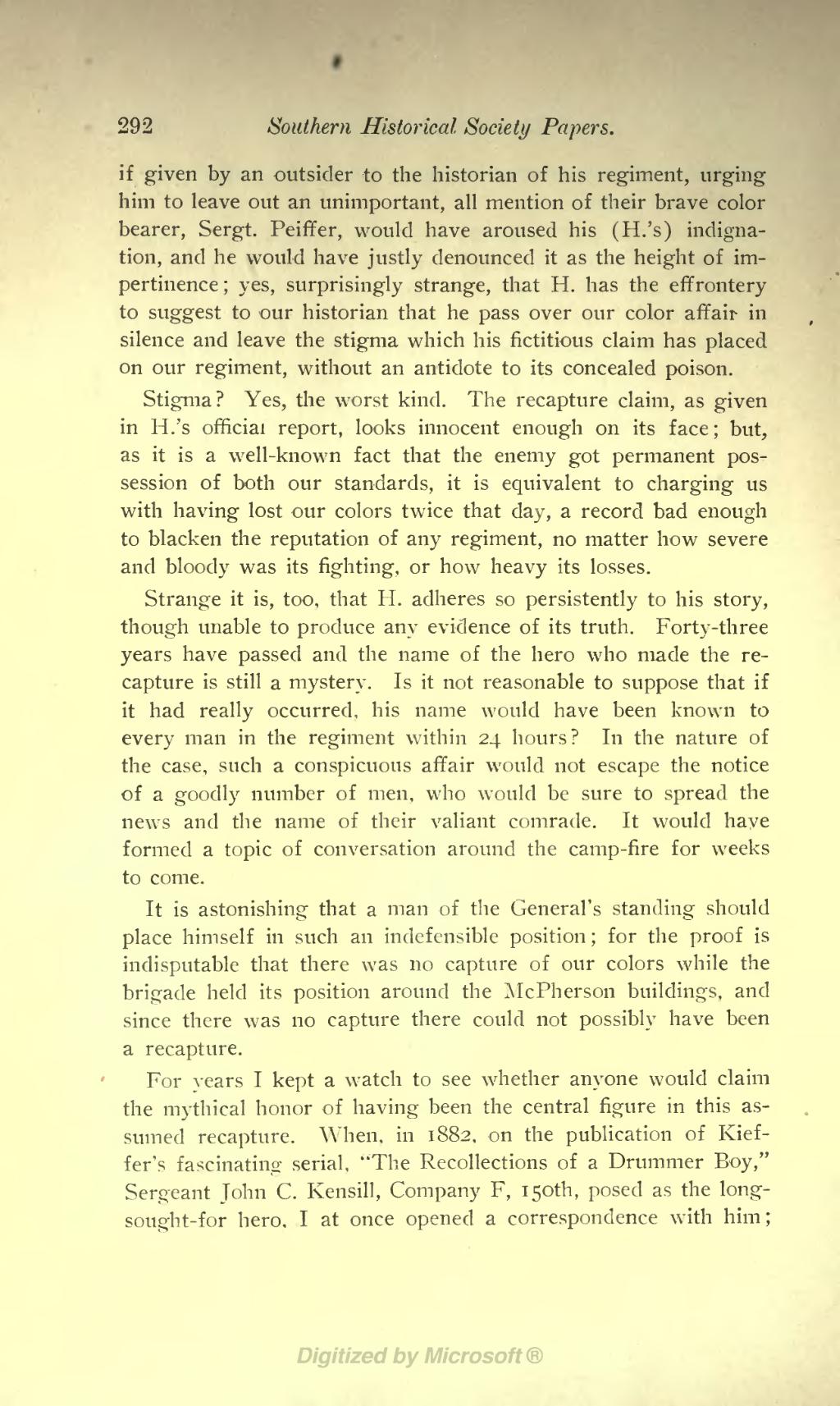if given by an outsider to the historian of his regiment, urging him to leave out an unimportant, all mention of their brave color bearer, Sergt. Peiffer, would have aroused his (H.'s) indignation, and he would have justly denounced it as the height of impertinence; yes, surprisingly strange, that H. has the effrontery to suggest to our historian that he pass over our color affair in silence and leave the stigma which his fictitious claim has placed on our regiment, without an antidote to its concealed poison.
Stigma? Yes, the worst kind. The recapture claim, as given in H.'s official report, looks innocent enough on its face; but, as it is a well-known fact that the enemy got permanent possession of both our standards, it is equivalent to charging us with having lost our colors twice that day, a record bad enough to blacken the reputation of any regiment, no matter how severe and bloody was its fighting, or how heavy its losses.
Strange it is, too, that H. adheres so persistently to his story, though unable to produce any evidence of its truth. Forty-three years have passed and the name of the hero who made the recapture is still a mystery. Is it not reasonable to suppose that if it had really occurred, his name would have been known to every man in the regiment within 24 hours? In the nature of the case, such a conspicuous affair would not escape the notice of a goodly number of men, who would be sure to spread the news and the name of their valiant comrade. It would have formed a topic of conversation around the camp-fire for weeks to come.
It is astonishing that a man of the General's standing should place himself in such an indefensible position; for the proof is indisputable that there was no capture of our colors while the brigade held its position around the McPherson buildings, and since there was no capture there could not possibly have been a recapture.
For years I kept a watch to see whether anyone would claim the mythical honor of having been the central figure in this assumed recapture. When, in 1882, on the publication of Kieffer's fascinating serial, "The Recollections of a Drummer Boy," Sergeant John C. Kensill, Company F, 150th, posed as the long-sought-for hero, I at once opened a correspondence with him;
